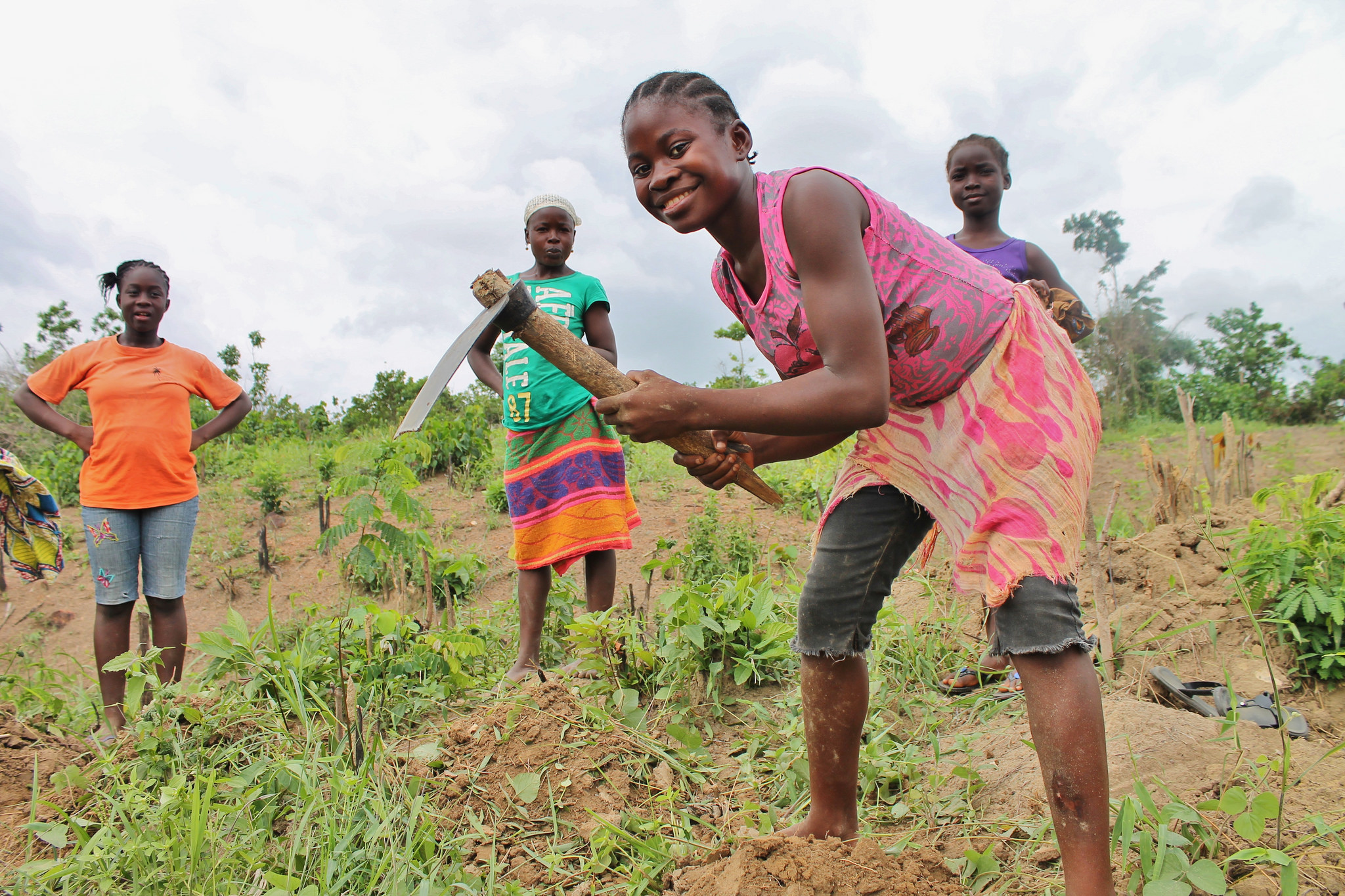Photo: USAID. This op-ed was first published on The Hill on March 8, 2017.
Authors: Catherine Weaver (ceweaver@austin.utexas.edu), Mary Vo (mary.vo@utexas.edu), Lina Nabulsi (lina.nabulsi@utexas.edu), and Cassie Gianni (cassie.gianni@utexas.edu)
On International Women’s Day on March 8, U.S. Congress can celebrate women by signaling their intent to fully fund the new Global Food Security Act (GFSA). In June 2016, Congress permanently authorized the GFSA with an overwhelming majority. This rare bipartisan act demonstrated our national commitment to women’s empowerment and well-being. When fully funded, GFSA will support programs across federal departments and agencies to enhance the nutritional health and agricultural livelihood activities of poor women in less developed countries. In this upcoming appropriations season, Congress can make rhetoric a reality by fully appropriating the requested $2 billion for 2017-2018.
Food insecurity and malnutrition harm millions of women and children worldwide. This is particularly true in less developed regions of Africa and south Asia, where up to 51 percent of women of reproductive age are underweight. Chronic food insecurity, marked by persistent absence of readily accessible and nutritious food, worsens this situation. In food insecure regions, such as Sierra Leone and Yemen, malnutrition creates an extraordinarily difficult cycle to break.
In times of crisis, women are especially vulnerable to hunger. Women will forgo their own food consumption to care for their families. Babies of malnourished women are born underweight and eventually become stunted, making them too short for their age. 165 million children are stunted worldwide, and 3.1 million children under the age of five die every single year from undernutrition. We can and must prevent this tragedy. Representative Chris Smith (R), Senior Member of the House Committee on Foreign Affairs, argued in support of the GFSA: “There is perhaps no wiser investment that we could make in the human person than to concentrate on ensuring that sufficient nutrition and health assistance is given during the first one thousand days of life.”
Women wield a tremendous potential for improving worldwide food security and nutrition. Many women serve as heads of households and smallholder farmers. However, they face greater barriers than men in the same roles to the resources necessary for physical health and economic prosperity. Because of historical power imbalances, women face serious inequalities in access to resources, such as proper tools, better seeds, land titles, and financial services, which leaves them and their children more vulnerable to food insecurity and malnutrition. Even while 43 percent of agricultural laborers in less developed countries are women, far too few own or manage the capital. For example, only 15 percent of landholders in Africa are women. Granting women farmers increased availability and equal access to resources would reduce the number of hungry people in the world by 150 million and profoundly improve children’s nutrition in developing countries.
Feed the Future, the 2009 USAID-led precursor to the GFSA, has proven the cost-effectiveness and success of such U.S. foreign aid programs. In 2015 alone, Feed the Future helped over 9 million smallholder farmers in 19 least developed countries, more than a third of whom were women. Azara Alhassan in Ghana is one of many female agricultural workers who have benefitted from Feed the Future’s provisions of fertilizer and other inputs, which have more than doubled harvests. In Feed the Future’s 2016 Progress Report, Alhassan claimed, “[Women] are able to pay their children’s school fees now and assist their husbands in providing food for the family.” These improvements contributed to significant reductions in poverty rates and improved health of women and 18 million children. But despite these remarkable gains, about 800 million people continue to suffer from chronic malnutrition all over the world.
The 2016 GFSA will modestly increase funding for Feed the Future, which—at less than $1 billion per year—accounts for only 10 percent of USAID’s current annual budget. This represents less than 2 percent of the total annual U.S. foreign aid budget and less than .002 percent of annual U.S. military spending. Given these numbers, improving children’s nutrition is one of the most cost-effective investments to reduce extreme poverty; every $1 spent in nutrition yields $16 in productivity returns. If fully appropriated, the rest of the GFSA funds will bolster such initiatives across multiple federal agencies.
Thirty years ago, in light of International Women’s Day, Congress and the White House boldly declared March to be National Women’s History Month. In January, mass marches in honor of women’s rights reminded us of our commitment to women, both within our nation and around the world. The time has come for our nation’s political leaders to keep this promise to nourish women’s well-being and empowerment by fully funding the Global Food Security Act.
Catherine Weaver is an associate professor of Public Affairs and co-director of Innovations for Peace and Development at the University of Texas at Austin.
Mary Vo is a Master in Global Policy student at the University of Texas at Austin.
Lina Nabulsi is a Master in Global Policy student at the University of Texas at Austin.
Cassie Gianni is a Master in Global Policy student at the University of Texas at Austin.

